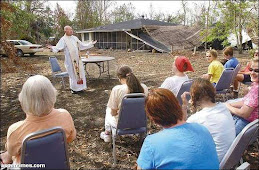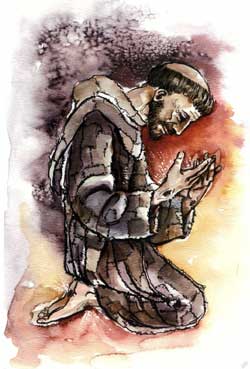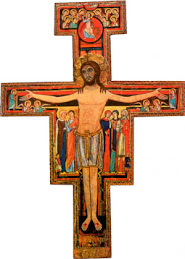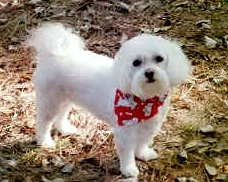This last Sunday was Palm Sunday. It marked the beginning of Holy Week, the time when Christians all over the world celebrate those events that constitute the central doctrines of our faith. On Palm Sunday, the Gospel of Mark describes Jesus’ entry into Jerusalem on the back of a lowly donkey. Jesus comes as a king whose rule is not about being served but serving.
The Easter Triduum occurs within Holy Week and is the culmination of the entire liturgical year, full of symbolism and sacred mysteries, mystery because the meaning is so profound as to be beyond any single explanation. It is a three-day period and celebration of the death and resurrection of Christ. The three days are counted as the Hebrews counted their days, from dusk to dusk. Therefore, the three days of the Easter Triduum are from dusk on Holy Thursday to dusk on Good Friday (day one), dusk on Good Friday to dusk on Holy Saturday (day two), and dusk on Holy Saturday to dusk on Easter Sunday (day three). Each of those days "tells" a different part of the story. We come to church at various times during those days, and when we are not in church, we try to live a quieter, simpler life, focusing more of our attention on Christ and less on the secular world.
Holy Thursday marks the end of Lent and the beginning of the Triduum. [click here for liturgical year] There is a service in the Church, centered around the story of the observance of Passover by Jesus and his followers before his crucifixion on Friday. There is a wonderful account of this Passover in the Gospel of John. Read and consider here the description of this extraordinary God. This God of humble love who dwells in inaccessible light and who came to dwell among us – this God who washes feet, pouring himself out for loving service, like water in a basin. On this night, he institutes the Holy Eucharist and the Priesthood. He becomes the Lamb of God, broken bread and poured out wine, no longer bread but His Body, no longer wine, but His Blood.We remember his prayers and suffering in the Garden of Gethsemane. Was this not where the battle was fought and the humanity of Christ cried out, "Father, if thou art willing, remove this cup from me; nevertheless not my will, but thine, be done." What cup, we wonder. The Fourth Cup not consumed during the Passover but on the cross of Good Friday when Jesus is executed in the manner of the common criminal of his day.
Good Friday is a day of fasting and abstinence. We recall the suffering of Jesus in the scourging, the crowning with thorns, and the carrying of his cross down the Via Dolorosa. We remember his crucifixion and that something monumental has happened. God has died that we might live. We memorialize this in a Church service again. The service is a continuation of what began on Holy Thursday.
The Easter Triduum reaches its high point in the Easter Vigil, celebrated on Saturday night. We recite the words: “Night truly blest when heaven is wedded to earth and man is reconciled with God!” This celebration is a long one. We proclaim with fire and song that Christ is risen. We listen to the Scripture stories of God's interaction with humankind from creation through to the resurrection. The joy continues on with Easter services on Sunday morning and songs of praise, “Christ the Lord is risen today, Alleluia!”
Sources or other interesting links:
http://www.catholic.org/international/international_story.php?id=33089http://www.nativity.org/Triduum.htmlhttp://www.priestsforlife.org/columns/columns2003/03-03-24triduum.htmhttp://www.zenit.org/article-25544?l=english
Venerable Gaetano Tantalo
-
Some weeks ago I visited an older parishioner in her home. As were were
chatting, I noticed pictures of two priests displayed in the room.
The priest on ...


















No comments:
Post a Comment